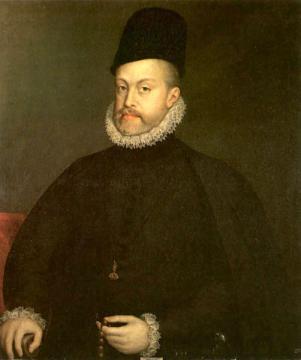
Before observing his deeds, let us cast a brief glance into his soul and find there the key to his political life… He was no “people person,” because he never looked down from his Self, he looked only upwards. His faith was terrible and dark, because his God was a terrible creature. He had nothing more to receive from God, only to fear. To the lesser man, God may seem a comforter, a savior, but to him God was an image of anxieties, the painful and humiliating barrier to his human omnipotence. His awe in the face of God was all the more deep and internalized the less he shared it with other beings… Absolute rule is from the outset too strong a temptation for human pride, and too great a test for human power. The pursuit of happiness and the highest expanse of individual freedom may be paired with a great human spirit… But the goal of the despot… is uniformity, and to that end, human poverty and misery serve as essential means. Philip was therefore compelled to be still more of a despot than his father because his spirit was more constrained, or to put it differently, he was required to keep all the more anxiously to the accepted rules because he had been kept all the more distant from the companionship and ways of his fellow humans. And what did all this produce? For Philip the Second, there was no higher cause than the uniformity of faith and of the state, precisely because he would be unable to rule without them.
—Friedrich Schiller, Philipp der Zweite, König von Spanien (1785) in: Sämtliche Werke, vol. 4, pp. 77-79 (Hanser ed. 1976)(S.H. transl.)


